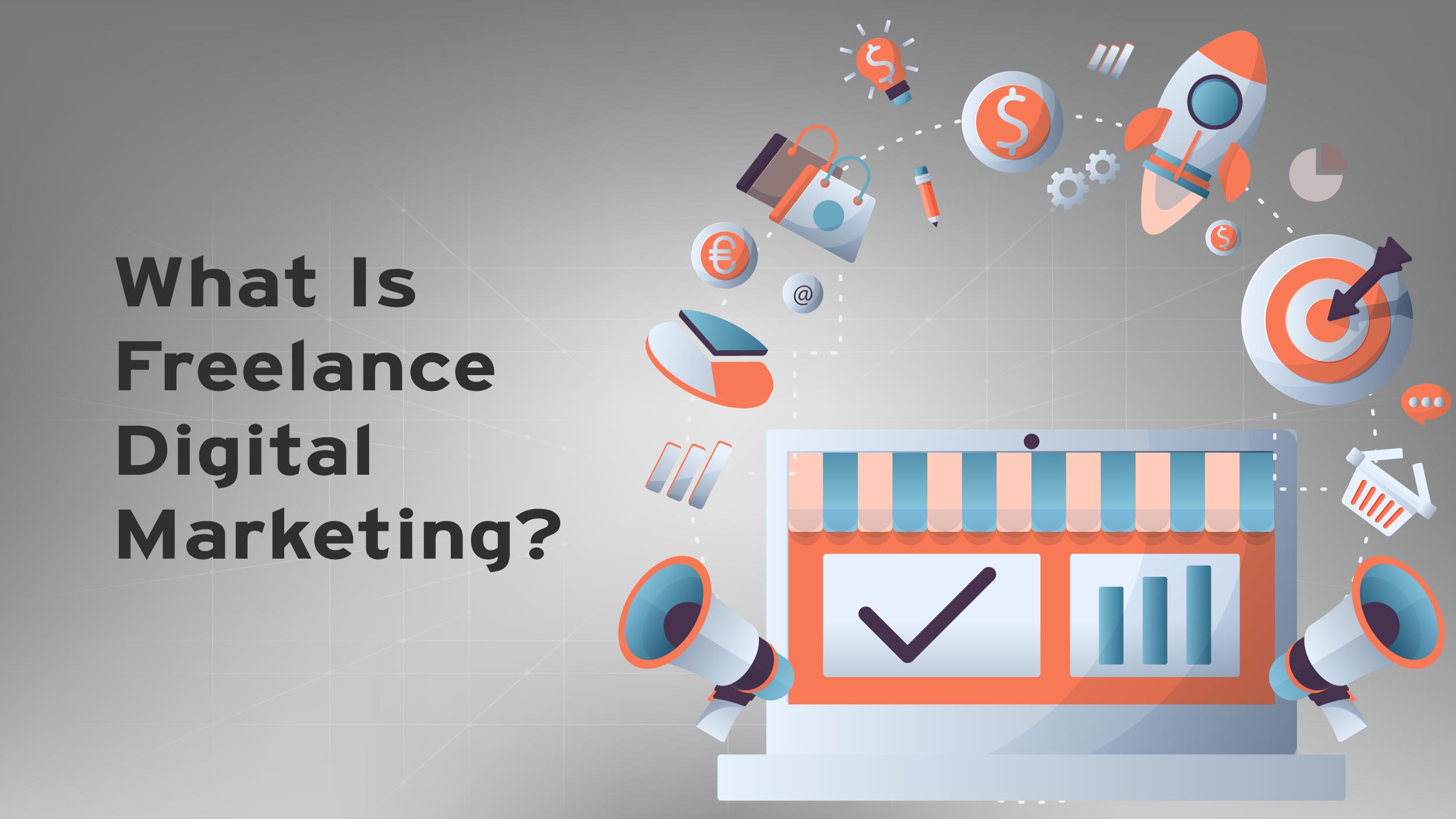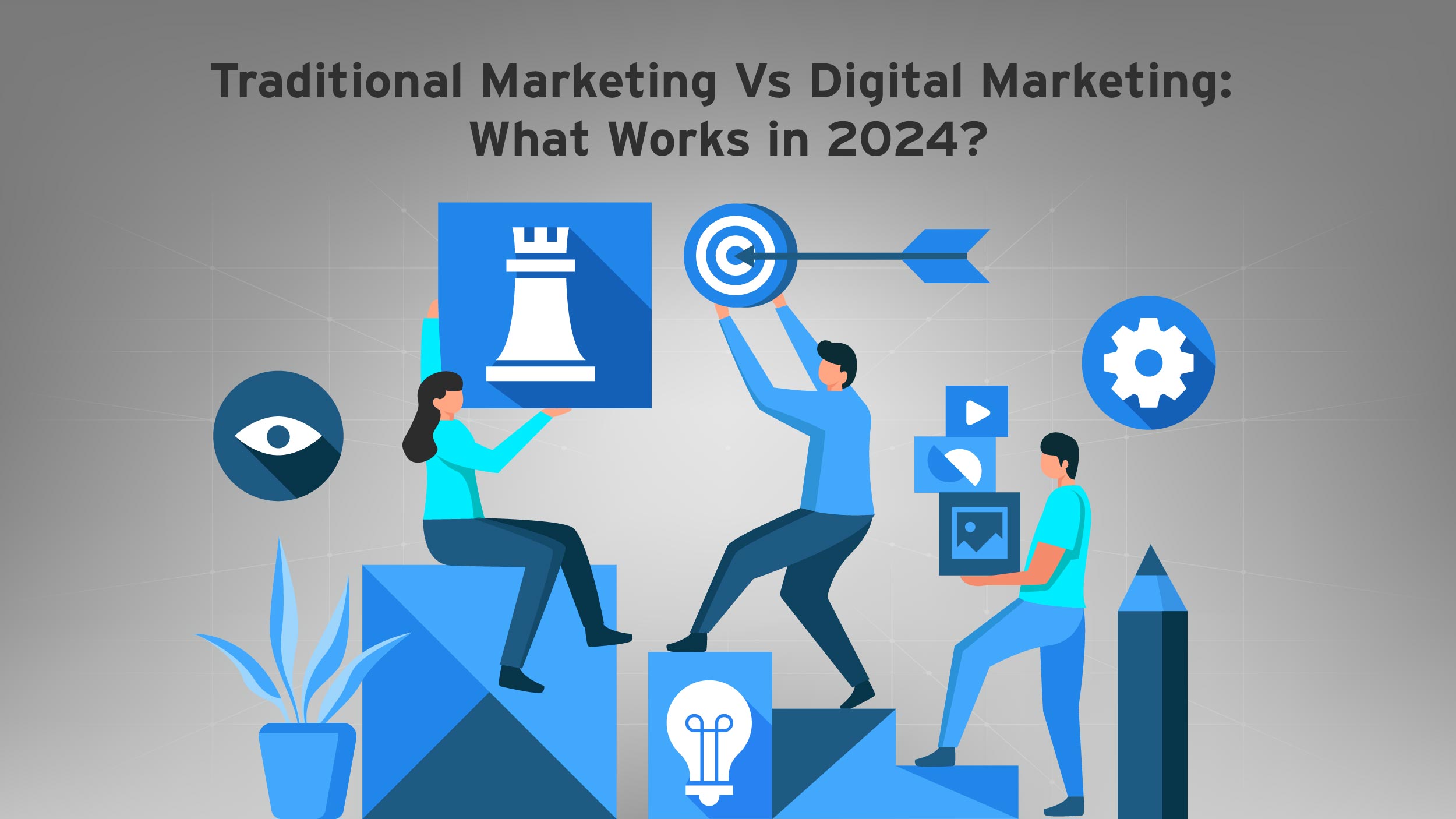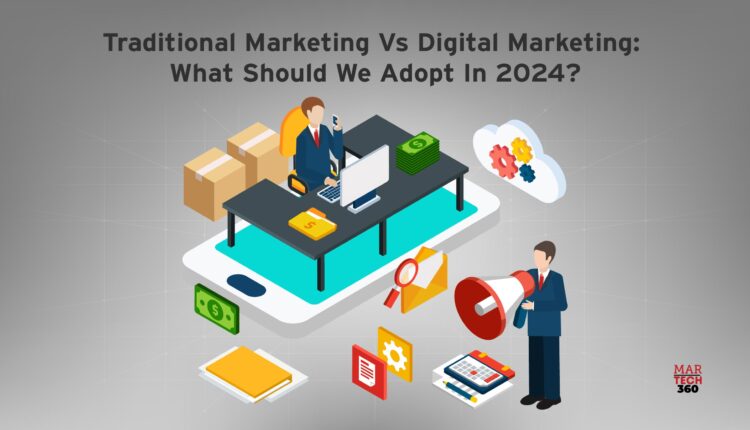In the realm of business strategy, marketing stands as a pivotal force, wielding the power to capture the interest of potential customers. However, the true conundrum arises when confronted with the decision between two distinct methodologies: traditional marketing vs digital marketing. In this ever-evolving landscape, where the effectiveness of each approach is pivotal, navigating the terrain of these contrasting marketing strategies becomes a crucial aspect of ensuring a business’s visibility and success.
Let’s dive in and understand how these two concepts are different from each other.
What is Traditional Marketing?
Traditional marketing funnel encompasses a wide range of practices. For example, tangible goods such as printed promotions in magazines or newspapers, as well as business cards, are all included. Radio and television commercials, posters, brochures, and billboards are all examples.
Traditional marketing refers to any non-digital means of advertising your brand. Customers discover your company through a referral or a network and begin purchasing your product or service, which is another definition of conventional marketing.
What is Digital Marketing?
Social media mentions, websites, banner ads, and YouTube videos are all examples of digital marketing. Traditional marketing is quite similar to digital marketing, except that digital devices are used. Through social media marketing, one can create a successful business.
The basic goal of digital marketing, which is a type of inbound marketing, is for customers to find you. Marketing your business using social media platforms, such as online organic search, sponsored search, or reading online material such as articles or blogs, has never been simpler. When people view your content consistently, they become more associated with it, which helps establish brand trust.
What Is Freelance Digital Marketing?
Freelance digital marketing involves providing contract-based digital marketing services to clients, rather than being employed by a specific company. Freelancers in this field offer a variety of services, such as content creation, social media marketing, paid advertising, video marketing, influencer marketing, and search engine optimization (SEO). They operate independently and are hired by businesses, nonprofits, and organizations to promote their brands, products, and services through various digital channels. Freelance digital marketing provides flexibility and the chance to work on diverse projects for different clients.
Also Read: Unlocking Potential of SAP CRM Strategies for Success
How To Get Into Digital Marketing?
To secure a starting position in digital marketing, it’s crucial to possess a deep understanding of the ever-evolving online marketing realm. This entails mastering various digital marketing solutions, techniques, advertising platforms, and associated processes. To help you achieve this goal, here are some key digital marketing concepts, techniques, and steps that you should familiarize yourself with.
You can choose from a huge range of specialties in digital marketing, including:
●Search engine optimization (SEO)
●Pay-per-click (PPC) advertising
●Social media marketing
●Email marketing
●Content marketing
●Influencer marketing
When crafting a company’s marketing strategy, it’s important to prioritize the various digital marketing specialties. Consider choosing a specialty that you find particularly fascinating and compelling to create an effective overall marketing plan.
Learn the Skill
If you want to pursue a career as a digital marketer, it’s essential to develop a strong grasp of digital advertising concepts and best practices. There are many free resources available online that can help you build the foundational knowledge needed for this field. Educational blog posts, YouTube tutorials, and community forums like Reddit are great places to start. You may also find helpful guides like this SEO best practices guide to further enhance your understanding.
As a new content marketer, it can be beneficial to update your data analytics skills by using tools like Google Analytics or other analytics platforms. If you specialize in social media marketing, it’s also helpful to become familiar with social media metrics platforms such as Hootsuite or Sprout Social.
Do a Certification Course
To gain a deeper understanding of digital marketing, you might consider enrolling in an online course or obtaining a professional certificate. These options provide valuable learning experiences and hands-on practice with the latest digital marketing tools.
If you’re uncertain about the type of training to pursue, you can refer to this post that explains the distinctions between digital marketing degrees, boot camps, and certificates.
Create a Portfolio
After grasping the fundamentals of digital marketing, it’s crucial to apply your knowledge in practical scenarios. The most effective approach is to construct a portfolio consisting of genuine marketing projects that can be presented to prospective employers.
To begin your journey into digital marketing, consider exploring popular PPC advertising platforms like Google Ads or Facebook Ads. These platforms offer quick results that are easily measurable, providing valuable insights into your digital marketing skills. Employers will appreciate your understanding of key digital marketing concepts gained through this experience.
Network
To secure your first job in digital marketing, it’s crucial to build a strong network with other professionals in the field. Utilize social media platforms like LinkedIn, Twitter, and Facebook to connect with experienced digital marketing specialists both online and in person.
Attending digital marketing conferences and meet-up events is also beneficial. These events provide great opportunities to network with experienced professionals, establish connections, and enter the tech industry.
Find an Agency or In-House Job
To enter the digital marketing industry, it is recommended to explore opportunities at both digital marketing agencies and in-house positions. Working at a digital marketing agency offers valuable professional experience and allows you to build your portfolio with diverse clientele.
Traditional Marketing Vs Digital Marketing: What Works in 2024?
The major distinction between digital and conventional marketing is the channel via which marketing content is delivered to an audience. Print media such as magazines and newspapers are used in traditional marketing, whilst digital platforms such as social media and websites are used in digital marketing.
A successful campaign requires striking the right mix between traditional and digital marketing. Traditional marketing continues to play an important role in the consumer lifecycle. Your money could be well spent if you have the budget to advertise your campaigns in magazines and on prime-time television.
We also can’t overlook the fact that we live in the internet age, no matter how effective traditional marketing is. With a well-thought-out digital marketing approach, you can target clients who are a good fit for your product. Not everyone who uses the internet is a potential consumer. You may make a customer persona and target individuals who suit that criteria.
Web analytics and other online metrics create the perfect make, evaluating your online marketing initiatives quite simply. It shows where the money goes and how much ROI (return on investment) and ROAS (return on advertising spend) can be expected for each dollar spent.
Final Thoughts
In concluding the exploration of traditional marketing vs digital marketing, the stark differences between these two approaches come to the forefront. While traditional marketing methods rely on tangible and conventional channels, digital marketing harnesses the power of the online realm for outreach and engagement. The key lies in recognizing that each approach carries its own set of strengths and weaknesses, and the effectiveness depends on various factors such as target audience, industry, and business objectives. The ongoing debate surrounding the traditional marketing vs digital marketing difference underscores the need for businesses to craft a strategic blend that aligns with their specific goals and adapts to the dynamic landscape of the market. Ultimately, a well-informed choice between these two avenues can significantly impact a business’s outreach, engagement, and overall success in today’s diverse and competitive marketing environment.


Comments are closed.